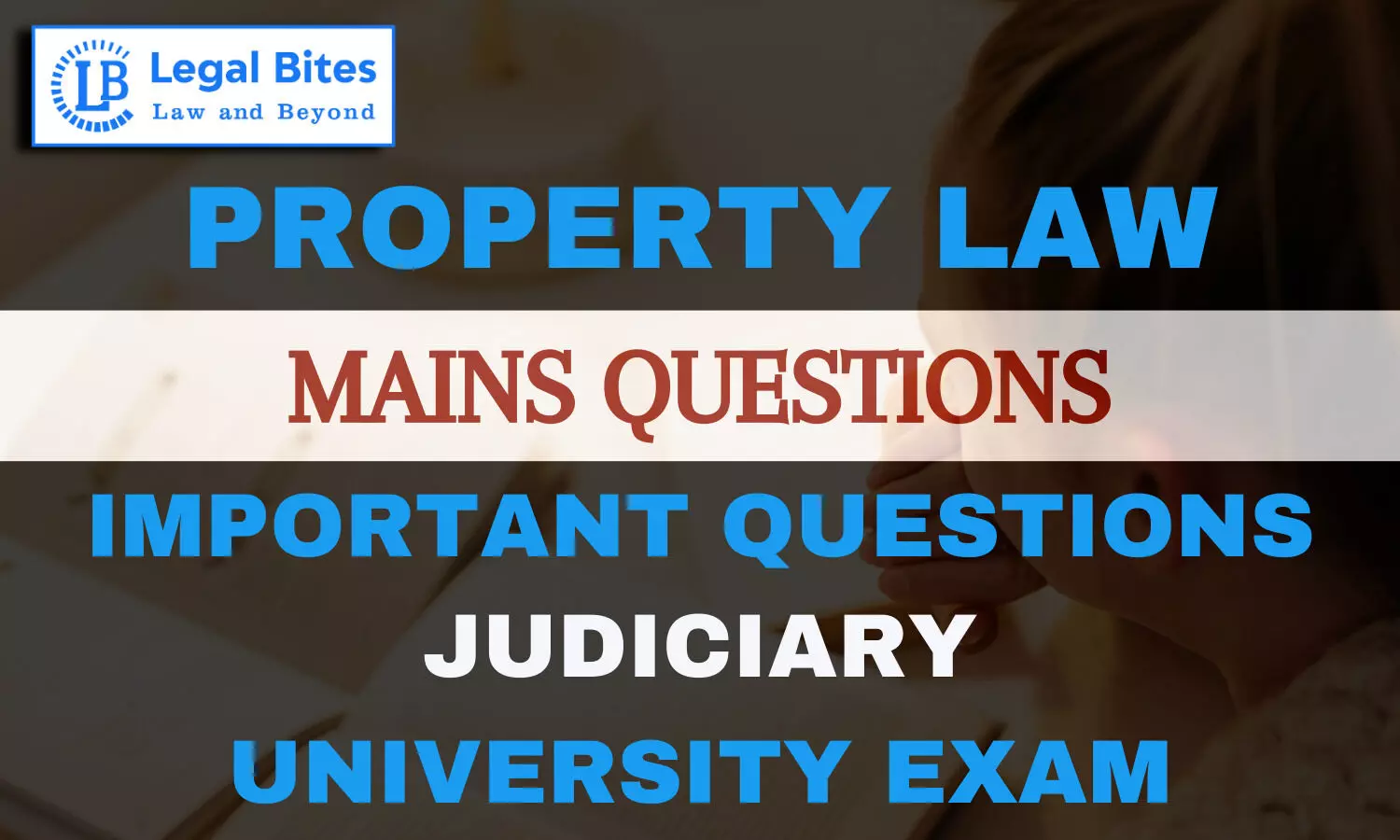Define Subrogation. Who are the persons entitled for subrogation? Distinguish between legal and conventional subrogation.
Find the answer to the mains question of Property Law only on Legal Bites.;

Question: Define Subrogation. Who are the persons entitled for subrogation? Distinguish between legal and conventional subrogation. [JJS 2014] Find the answer to the mains question of Property Law only on Legal Bites. [Define Subrogation. Who are the persons entitled for subrogation? Distinguish between legal and conventional subrogation.]AnswerSubrogation is essentially a principle of legal substitution, where one person is substituted for another. In the context of the Transfer of...
Question: Define Subrogation. Who are the persons entitled for subrogation? Distinguish between legal and conventional subrogation. [JJS 2014]
Find the answer to the mains question of Property Law only on Legal Bites. [Define Subrogation. Who are the persons entitled for subrogation? Distinguish between legal and conventional subrogation.]
Answer
Subrogation is essentially a principle of legal substitution, where one person is substituted for another. In the context of the Transfer of Property Act, Section 92 addresses the rights of subrogation for two distinct categories of individuals: those with an existing interest in the property and strangers who acquire an interest in the property.
Entitled Persons for Subrogation
According to Section 92 of the Transfer of Property Act, any co-mortgagor, upon redeeming the property from the creditor, gains rights of subrogation equivalent to those of the mortgagee. This means the redeeming co-mortgagor has the same rights against the mortgagor or any other creditor as the mortgagee whose mortgage was redeemed.
Distinguishing Legal and Conventional Subrogation
1. Legal Subrogation
Legal subrogation arises from the equitable principle of reimbursement. The foundation of this right is the principle that if an individual has an interest in the payment of money that someone else is obligated to pay, and that individual pays it, they are entitled to be compensated by the obligated party.
In the context of mortgages, legal subrogation is embodied in Section 92 of the Transfer of Property Act. A person with an interest in the property can claim legal subrogation, and it carries an equitable charge. For example, a puisne mortgagee redeeming a prior mortgage is lawfully subrogated to the rights of the prior mortgagee, irrespective of intention.
2. Conventional Subrogation
Conventional subrogation, as per the amended Section 92 of the Transfer of Property Act, requires a specific contract between the mortgagor or seller and the mortgagee or buyer, respectively. In cases where an individual purchases property subject to a mortgage, and the consideration for the sale includes the discharge of the mortgage amount, it falls under Section 92.
The critical aspect is that there must be an agreement, express or implied, stating that the person making the payment shall exercise the rights and powers of the original creditor. After the amendment, it is crucial that this agreement is in writing and registered. Without such an agreement, even if someone discharges a mortgage debt, they do not acquire the benefits of the mortgagee’s security.



